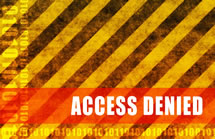
Students who have signed up for Indiana’s broad new school voucher program could be jerked out of private schools mid-semester or forced to scramble to re-enroll in public school unless it’s allowed to proceed pending the outcome of a legal challenge, state officials argued August 11th.
Marion Superior Court Judge Michael Keele said he would rule early next week on a request from a group of teachers and religious leaders backed by the Indiana State Teachers Association to issue a preliminary injunction keeping the law from taking effect.
The program, which allows even middle-class parents to use taxpayer money to send their children to private secular and religious schools, violates the state constitution because it provides public money to schools whose main purpose is to promote religion, John West, an attorney for the group suing to stop the program, argued in Marion Superior Court.
“What we’re talking about here finally is a program that provides state funds to send children to religious schools,” West said.
Solicitor General Tom Fisher argued that the voucher system is legal because the state isn’t directly funding parochial schools directly. Instead, it gives scholarship vouchers to parents, who can choose which school to use them at.
He likened a parent using vouchers to send children to religious schools to a state employee donating part of his paycheck to a church. Any benefit to religious institutions from vouchers was merely incidental, Fisher said.
West disagreed, saying that vouchers helped religious schools recruit new students—and potentially new members—they otherwise wouldn’t have reached.
After listening to two hours of arguments, Judge Michael Keele said he will rule early next week on whether to grant an injunction halting the program until the lawsuit is resolved.
About 2,800 Indiana students have been approved for the state-funded scholarships, and Attorney General Greg Zoeller said more than 150 of them used the vouchers to enroll in private schools that started this week.
“Any injunction would be extremely disruptive to their education while this litigation is pending,” Zoeller said.
Teresa Meredith, a Shelbyville teacher and teachers union vice president who is the main plaintiff, said any disruption should be minimal if the judge rules early next week before most school systems have resumed classes.
The voucher program takes a portion of the money that would have gone to a public school system and converts it into a scholarship for use at a private secular or religious school approved by the state. The plaintiffs, who are backed by the Indiana State Teachers Association, say 90 percent of the roughly 250 eligible schools are religious.
Unlike other systems that are limited to lower-income households, children with special needs or those in failing schools, Indiana’s voucher program is open to a much larger pool of students, including those already in excellent schools. Families have to meet certain income limits to qualify, with families of four making up to about $60,000 a year getting some type of scholarship.
The U.S. Supreme Court has given its backing to voucher programs, ruling they don’t violate the Constitution. But West pointed out that courts in several states have overturned voucher laws on the grounds that they went further toward supporting religious institutions than their state constitutions allowed.
Bert Gall, an attorney with the libertarian Institute for Justice who is representing two families who want to use the Indiana’s new vouchers, argued that courts in Ohio and Wisconsin have upheld their state voucher laws, and that their laws regarding the matter are similar to Indiana’s.
Gall said after the hearing that if the preliminary injunction is granted, it would mean hardship for families whose children had already used vouchers to enroll in private school.
“You’re literally yanking people out of their seat at private school because of the preliminary injunction,” he said.
One of the parents Gall is representing, Heather Coffy, said she joined the suit because her children attend parochial school and that without the vouchers, it would require at least half of her income to send her children to the schools she’s chosen
Monica Poindexter, who also joined the suit, said her 5-year-old son is in his second year at Holy Angels Catholic School and her 12-year-old daughter is starting junior high at Cardinal Ritter High School.
While a scholarship helped her pay part of the tuition last year, her daughter is now in junior high and the cost is going up, she said.
“Without a voucher, I don’t foresee how I could do this too much longer,” she said.
- ‘Buyer’s remorse’ dogging Common Core rollout - October 30, 2014
- Calif. law targets social media monitoring of students - October 2, 2014
- Elementary world language instruction - September 25, 2014

